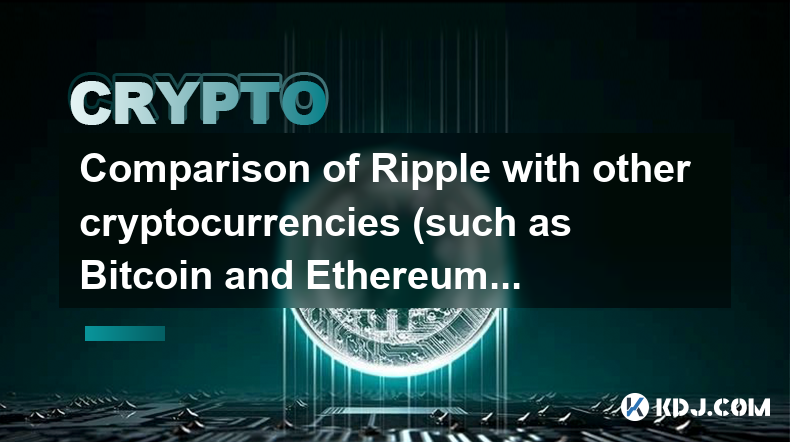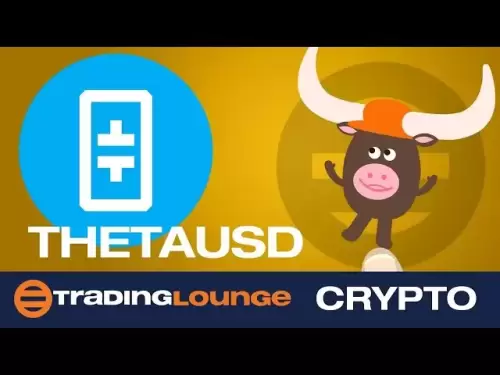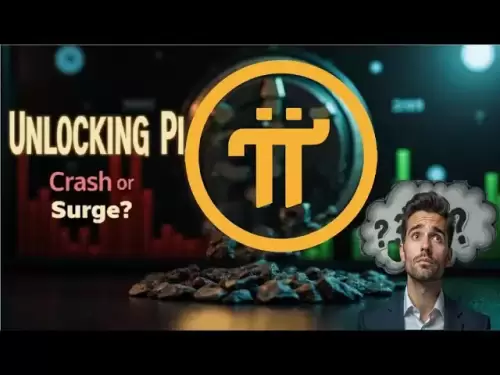-
 Bitcoin
Bitcoin $108,270.9768
2.07% -
 Ethereum
Ethereum $2,489.8066
2.50% -
 Tether USDt
Tether USDt $1.0004
0.01% -
 XRP
XRP $2.2035
0.66% -
 BNB
BNB $661.6608
2.32% -
 Solana
Solana $150.6425
2.13% -
 USDC
USDC $0.9999
-0.01% -
 TRON
TRON $0.2810
0.90% -
 Dogecoin
Dogecoin $0.1645
3.05% -
 Cardano
Cardano $0.5743
4.91% -
 Hyperliquid
Hyperliquid $38.8419
-0.15% -
 Bitcoin Cash
Bitcoin Cash $504.3134
-2.64% -
 Sui
Sui $2.8096
4.35% -
 Chainlink
Chainlink $13.3095
2.21% -
 UNUS SED LEO
UNUS SED LEO $8.9469
0.33% -
 Avalanche
Avalanche $17.9231
3.93% -
 Stellar
Stellar $0.2340
0.74% -
 Toncoin
Toncoin $2.8458
3.21% -
 Shiba Inu
Shiba Inu $0.0...01158
3.47% -
 Litecoin
Litecoin $86.0738
1.94% -
 Hedera
Hedera $0.1507
2.99% -
 Monero
Monero $319.8544
2.31% -
 Polkadot
Polkadot $3.4081
1.95% -
 Dai
Dai $1.0000
0.01% -
 Bitget Token
Bitget Token $4.5645
0.91% -
 Ethena USDe
Ethena USDe $1.0002
0.00% -
 Uniswap
Uniswap $7.2959
5.27% -
 Aave
Aave $272.4623
2.90% -
 Pepe
Pepe $0.0...09680
2.96% -
 Pi
Pi $0.4955
0.78%
Comparison of Ripple with other cryptocurrencies (such as Bitcoin and Ethereum)
Ripple prioritizes fast, low-cost cross-border payments for institutions, unlike Bitcoin's focus on decentralization and Ethereum's emphasis on smart contracts and dApps; each caters to a distinct market segment.
Mar 15, 2025 at 01:05 am

Key Points:
- Ripple (XRP) distinguishes itself from Bitcoin and Ethereum through its focus on facilitating fast, low-cost cross-border payments for financial institutions.
- Bitcoin prioritizes decentralization and security as a store of value and peer-to-peer payment system.
- Ethereum emphasizes smart contracts and decentralized applications (dApps), enabling the creation of diverse blockchain-based functionalities.
- Each cryptocurrency targets a different market segment and possesses unique technological characteristics. Direct comparison requires careful consideration of their distinct goals and functionalities.
Comparison of Ripple with other cryptocurrencies (such as Bitcoin and Ethereum)
Ripple (XRP), Bitcoin (BTC), and Ethereum (ETH) represent three distinct approaches within the cryptocurrency landscape. While all operate on blockchain technology, their underlying goals, mechanisms, and target audiences differ significantly. Understanding these differences is crucial for investors and users navigating the crypto market.
Ripple (XRP): A Focus on Institutional Payments
Ripple's primary objective is to provide a faster, cheaper, and more efficient solution for cross-border payments, particularly for financial institutions. Its XRP token facilitates transactions on its network, the RippleNet, enabling banks and other institutions to transfer money globally with reduced processing times and fees. Unlike Bitcoin or Ethereum, Ripple prioritizes speed and scalability over complete decentralization.
Bitcoin (BTC): The Pioneer of Decentralization
Bitcoin, the first cryptocurrency, established the foundational principles of blockchain technology. Its core strength lies in its decentralized nature, ensuring no single entity controls the network. This contributes to its security and resistance to censorship. Bitcoin's primary function is as a store of value and a peer-to-peer payment system, although transaction speeds and fees can be relatively high compared to Ripple.
Ethereum (ETH): The Smart Contract Platform
Ethereum expands on Bitcoin's blockchain technology by introducing smart contracts – self-executing contracts with the terms of the agreement directly written into code. This allows developers to create decentralized applications (dApps) with a wide range of functionalities, from decentralized finance (DeFi) protocols to non-fungible token (NFT) marketplaces. While Ethereum also supports payments, its focus is on building a decentralized application ecosystem.
Technological Differences:
- Consensus Mechanisms: Bitcoin utilizes Proof-of-Work (PoW), a computationally intensive process requiring significant energy consumption. Ethereum transitioned from PoW to Proof-of-Stake (PoS), a more energy-efficient mechanism. Ripple uses a unique consensus mechanism tailored for speed and efficiency.
- Scalability: Bitcoin and, to a lesser extent, Ethereum face scalability challenges, meaning processing many transactions simultaneously can be slow and expensive. Ripple's network is designed for high transaction throughput, making it more suitable for high-volume payments.
- Decentralization: Bitcoin is highly decentralized, with no central authority. Ethereum is becoming more decentralized with its transition to PoS. Ripple's network, while distributed, is less decentralized than Bitcoin due to its focus on institutional partnerships.
Market Positioning and Target Audience:
- Ripple: Primarily targets banks and financial institutions seeking to improve their cross-border payment systems.
- Bitcoin: Appeals to investors seeking a store of value, those interested in decentralized finance, and users wanting a censorship-resistant payment system.
- Ethereum: Attracts developers building dApps, investors in the DeFi space, and users engaging with NFTs and other blockchain-based projects.
How Ripple, Bitcoin, and Ethereum differ in their approach to transaction fees:
- Bitcoin: Transaction fees are variable and depend on network congestion. High demand leads to higher fees.
- Ethereum: Similar to Bitcoin, fees are dynamic and influenced by network activity.
- Ripple: Transaction fees are generally lower and more predictable than Bitcoin and Ethereum, especially for high-volume transactions.
Further Distinctions:
- Regulation: Each cryptocurrency faces different regulatory scrutiny globally. Bitcoin's decentralized nature makes it difficult to regulate, while Ripple has faced legal challenges related to its relationship with financial institutions. Ethereum's regulatory landscape is evolving as its use cases expand.
- Volatility: All three cryptocurrencies exhibit price volatility, although Bitcoin tends to be less volatile than smaller altcoins like XRP. Ethereum’s volatility is influenced by its broader ecosystem's development and adoption.
- Community and Development: Each cryptocurrency has a unique community and development team, influencing its trajectory and future developments. Bitcoin has a large, established community, while Ethereum's community is vibrant and actively involved in its ecosystem. Ripple’s community is more focused on its institutional partnerships.
Frequently Asked Questions:
Q: Which cryptocurrency is best for long-term investment?
A: There is no single "best" cryptocurrency for long-term investment. The ideal choice depends on individual risk tolerance, investment goals, and understanding of each cryptocurrency's technology and market position.
Q: Which cryptocurrency is most secure?
A: Bitcoin, with its established network and extensive security audits, is generally considered among the most secure cryptocurrencies. However, security is a complex issue, and all cryptocurrencies are susceptible to various risks.
Q: Which cryptocurrency is the fastest?
A: Ripple generally boasts faster transaction speeds compared to Bitcoin and Ethereum, particularly for large-volume transactions. However, the actual transaction speed can vary based on network congestion.
Q: Which cryptocurrency is best for everyday payments?
A: None of these three cryptocurrencies are ideally suited for widespread everyday payments due to volatility and transaction fees, especially Bitcoin and Ethereum. Ripple's focus on institutional payments also makes it less ideal for consumer use.
Q: Can I use XRP to purchase goods and services?
A: While some merchants accept XRP, its adoption for everyday purchases is limited compared to Bitcoin. The volatility of XRP makes it less practical for everyday transactions.
Q: Is Ripple a security?
A: This is a complex legal question currently under legal debate. The classification of XRP as a security or a commodity varies depending on jurisdiction and interpretation of relevant regulations.
Disclaimer:info@kdj.com
The information provided is not trading advice. kdj.com does not assume any responsibility for any investments made based on the information provided in this article. Cryptocurrencies are highly volatile and it is highly recommended that you invest with caution after thorough research!
If you believe that the content used on this website infringes your copyright, please contact us immediately (info@kdj.com) and we will delete it promptly.
- NEOP and the Meme Coin Mania: A New Era of Crypto Investing?
- 2025-07-02 22:50:12
- SUI Rebound: Analyst Predicts Potential Price Targets for Explosive Move
- 2025-07-02 23:30:12
- Trump, Crypto, and Fortune: A Wild Ride in 2025
- 2025-07-02 23:30:12
- NodeOps, Network, Tokenomics: DePIN 2.0 is Here!
- 2025-07-02 23:35:12
- Dollar Coin Auction Mania: Are These Coins Really Worth the Hype?
- 2025-07-02 23:35:13
- Portugal Embraces Cryptocurrency Cloud Mining: A New Era with GMO Miner
- 2025-07-02 23:40:12
Related knowledge

How to customize USDT TRC20 mining fees? Flexible adjustment tutorial
Jun 13,2025 at 01:42am
Understanding USDT TRC20 Mining FeesMining fees on the TRON (TRC20) network are essential for processing transactions. Unlike Bitcoin or Ethereum, where miners directly validate transactions, TRON uses a delegated proof-of-stake (DPoS) mechanism. However, users still need to pay bandwidth and energy fees, which are collectively referred to as 'mining fe...

USDT TRC20 transaction is stuck? Solution summary
Jun 14,2025 at 11:15pm
Understanding USDT TRC20 TransactionsWhen users mention that a USDT TRC20 transaction is stuck, they typically refer to a situation where the transfer of Tether (USDT) on the TRON blockchain has not been confirmed for an extended period. This issue may arise due to various reasons such as network congestion, insufficient transaction fees, or wallet-rela...

How to cancel USDT TRC20 unconfirmed transactions? Operation guide
Jun 13,2025 at 11:01pm
Understanding USDT TRC20 Unconfirmed TransactionsWhen dealing with USDT TRC20 transactions, it’s crucial to understand what an unconfirmed transaction means. An unconfirmed transaction is one that has been broadcasted to the blockchain network but hasn’t yet been included in a block. This typically occurs due to low transaction fees or network congestio...

How to check USDT TRC20 balance? Introduction to multiple query methods
Jun 21,2025 at 02:42am
Understanding USDT TRC20 and Its ImportanceUSDT (Tether) is one of the most widely used stablecoins in the cryptocurrency market. It exists on multiple blockchain networks, including TRC20, which operates on the Tron (TRX) network. Checking your USDT TRC20 balance accurately is crucial for users who hold or transact with this asset. Whether you're sendi...

What to do if USDT TRC20 transfers are congested? Speed up trading skills
Jun 13,2025 at 09:56am
Understanding USDT TRC20 Transfer CongestionWhen transferring USDT TRC20, users may occasionally experience delays or congestion. This typically occurs due to network overload on the TRON blockchain, which hosts the TRC20 version of Tether. Unlike the ERC20 variant (which runs on Ethereum), TRC20 transactions are generally faster and cheaper, but during...

The relationship between USDT TRC20 and TRON chain: technical background analysis
Jun 12,2025 at 01:28pm
What is USDT TRC20?USDT TRC20 refers to the Tether (USDT) token issued on the TRON blockchain using the TRC-20 standard. Unlike the more commonly known ERC-20 version of USDT (which runs on Ethereum), the TRC-20 variant leverages the TRON network's infrastructure for faster and cheaper transactions. The emergence of this version came as part of Tether’s...

How to customize USDT TRC20 mining fees? Flexible adjustment tutorial
Jun 13,2025 at 01:42am
Understanding USDT TRC20 Mining FeesMining fees on the TRON (TRC20) network are essential for processing transactions. Unlike Bitcoin or Ethereum, where miners directly validate transactions, TRON uses a delegated proof-of-stake (DPoS) mechanism. However, users still need to pay bandwidth and energy fees, which are collectively referred to as 'mining fe...

USDT TRC20 transaction is stuck? Solution summary
Jun 14,2025 at 11:15pm
Understanding USDT TRC20 TransactionsWhen users mention that a USDT TRC20 transaction is stuck, they typically refer to a situation where the transfer of Tether (USDT) on the TRON blockchain has not been confirmed for an extended period. This issue may arise due to various reasons such as network congestion, insufficient transaction fees, or wallet-rela...

How to cancel USDT TRC20 unconfirmed transactions? Operation guide
Jun 13,2025 at 11:01pm
Understanding USDT TRC20 Unconfirmed TransactionsWhen dealing with USDT TRC20 transactions, it’s crucial to understand what an unconfirmed transaction means. An unconfirmed transaction is one that has been broadcasted to the blockchain network but hasn’t yet been included in a block. This typically occurs due to low transaction fees or network congestio...

How to check USDT TRC20 balance? Introduction to multiple query methods
Jun 21,2025 at 02:42am
Understanding USDT TRC20 and Its ImportanceUSDT (Tether) is one of the most widely used stablecoins in the cryptocurrency market. It exists on multiple blockchain networks, including TRC20, which operates on the Tron (TRX) network. Checking your USDT TRC20 balance accurately is crucial for users who hold or transact with this asset. Whether you're sendi...

What to do if USDT TRC20 transfers are congested? Speed up trading skills
Jun 13,2025 at 09:56am
Understanding USDT TRC20 Transfer CongestionWhen transferring USDT TRC20, users may occasionally experience delays or congestion. This typically occurs due to network overload on the TRON blockchain, which hosts the TRC20 version of Tether. Unlike the ERC20 variant (which runs on Ethereum), TRC20 transactions are generally faster and cheaper, but during...

The relationship between USDT TRC20 and TRON chain: technical background analysis
Jun 12,2025 at 01:28pm
What is USDT TRC20?USDT TRC20 refers to the Tether (USDT) token issued on the TRON blockchain using the TRC-20 standard. Unlike the more commonly known ERC-20 version of USDT (which runs on Ethereum), the TRC-20 variant leverages the TRON network's infrastructure for faster and cheaper transactions. The emergence of this version came as part of Tether’s...
See all articles

























































































